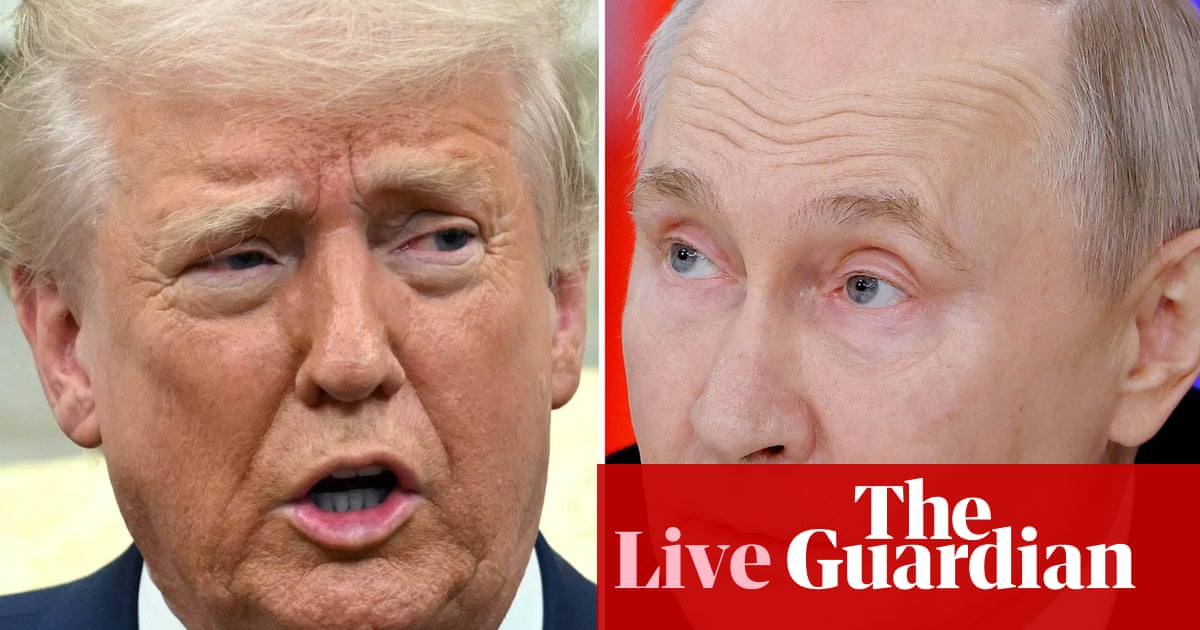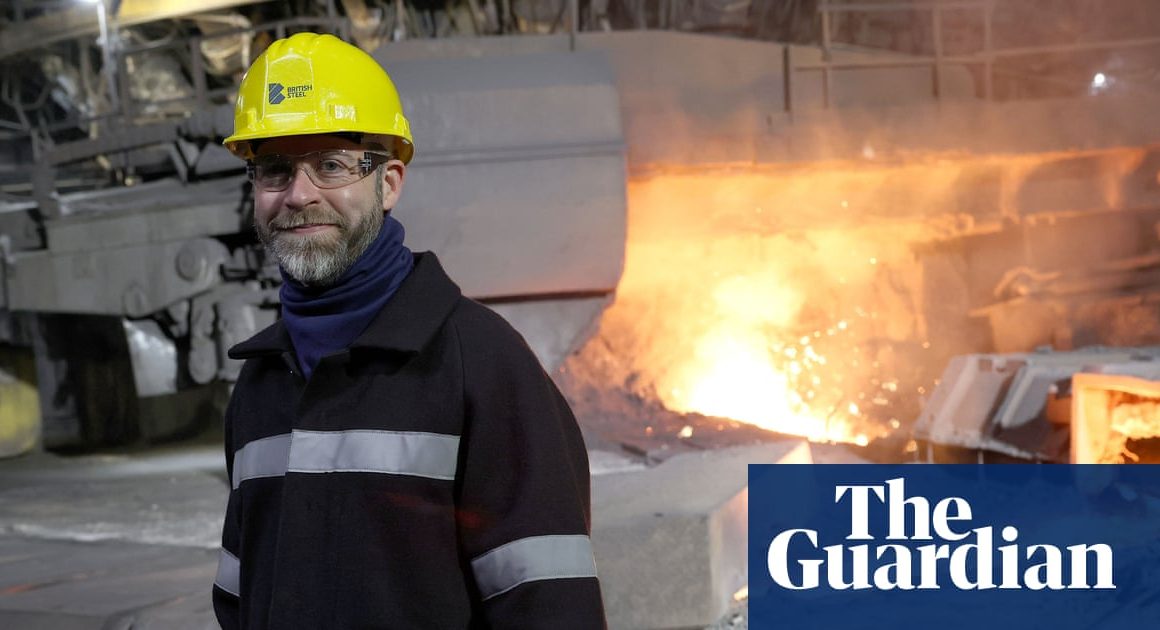Russia agrees to limited energy and infrastructure ceasefire in Ukraine, White House says
Russia has agreed to a limited energy and infrastructure ceasefire as part of the US-led initiative to end the Russian invasion of Ukraine, the White House has confirmed.
In a statement released after Donald Trump’s call with Vladimir Putin, the White House said the two sides agreed to hold “technical negotiations” on a maritime ceasefire, and, further, full ceasefire and permanent peace.
“These negotiations will begin immediately in the Middle East,” the White House said.
Trump and Putin also “agreed that a future with an improved bilateral relationship between the US and Russia has huge upside,” with “enormous economic deals and geopolitical stability.”
Readout of President Donald J. Trump’s Call with President Vladimir Putin
Today, President Trump and President Putin spoke about the need for peace and a ceasefire in the Ukraine war. Both leaders agreed this conflict needs to end with a lasting peace. They also stressed the need for improved bilateral relations between the United States and Russia.The blood and treasure that both Ukraine and Russia have been spending in this war would be better spent on the needs of their people.
This conflict should never have started and should have been ended long ago with sincere and good faith peace efforts. The leaders agreed that the movement to peace will begin with an energy and infrastructure ceasefire, as well as technical negotiations on implementation of a maritime ceasefire in the Black Sea, full ceasefire and permanent peace. These negotiations will begin immediately in the Middle East.
The leaders spoke broadly about the Middle East as a region of potential cooperation to prevent future conflicts. They further discussed the need to stop proliferation of strategic weapons and will engage with others to ensure the broadest possible application. The two leaders shared the view that Iran should never be in a position to destroy Israel.
The two leaders agreed that a future with an improved bilateral relationship between the United States and Russia has huge upside. This includes enormous economic deals and geopolitical stability when peace has been achieved.
Key events
-
Ukraine would support proposal to stop strikes on energy infrastructure, Zelenskyy says
-
‘Historic’ German spending package is ‘good news for Europe’, says Macron
-
Trump says discussed elements of Ukraine peace deal in ‘productive call’ with Putin
-
European leaders welcome ‘first step’ towards ceasefire, repeat calls for Ukraine to be part of talks
-
US-Russia hockey games floated in Putin-Trump talks
-
Putin agrees to 30-day ceasefire in attacks on energy infrastructure, but long lists of conditions, demands remain for further progress
-
Russia agrees to limited energy and infrastructure ceasefire in Ukraine, White House says
-
Russia and Ukraine to swap 175 prisoners of war, Kremlin says
-
Ukraine’s Yermak lays out Kyiv’s ‘red lines’ as Trump-Putin call continues
-
Zelenskyy arrives in Finland
-
Germany votes for ‘historic’ spending package – analysis
-
Furious AfD leader Weidel says Merz’s proposals would be ruinous for Germany
-
Trump-Putin call still in progress, White House says
-
Final glimpse at the 20th Bundestag
-
‘Largest fiscal regime shift since reunification’ of Germany, Deutsche Bank economist says
-
‘The money is here’ as Bundestag passes Merz’s proposals – snap analysis
-
Trump-Putin phone call on Ukraine ‘going well’
-
German spending package passed by Bundestag
-
Europe will always stand for sovereignty, territorial integrity, von der Leyen tells Denmark
-
Hungary passes law against Budapest Pride march
-
Ten EU countries offer ‘readiness’ to seek alternative funding for Radio Free Europe after US cuts
-
France to buy more Rafale warplanes than planned, Macron says
-
Estonia wants to raise defence spending to ‘at least’ 5% GDP in 2026
-
Irish challenge seeking clarity on secret agreement with UK RAF cleared by court
-
German Bundestag voting on debt brake, spending proposals
-
UK prime minister Starmer spoke with Trump on Ukraine last night
-
What to expect from Trump-Putin call? – analysis
-
Pope Francis reiterates call for peace, disarmament in letter from hospital
-
German needs changes to face ‘one of, if not the, greatest security policy challenge in history,’ defence minister says
-
Russia wants to fly to Mars with US and Musk
-
Ukraine at the centre of argument for German reforms
-
German reforms needed because of ‘Putin’s war against Europe,’ Merz says
-
Fiery start to Bundestag debate on Merz’s spending plans
-
Poland and the Baltics intend to withdraw from antipersonnel land mine ban convention
-
Putin-Trump call scheduled for afternoon, Kremlin confirms
-
Trump’s plan is for Ukraine to ‘surrender’ to Russia, former head of US forces in Europe warns
-
Germany set to vote on Merz’s plans to unlock record level of state borrowing
-
Morning opening: Waiting for the call
It’s worth noting the equivalence implied in the wording of the limited ceasefire agreement between Donald Trump and Vladimir Putin regarding attacks on energy infrastructure during the war.
The Kremlin’s readout (in Russian) said Trump put forward “a proposal for the parties to the conflict to mutually refrain from attacks on energy infrastructure facilities for 30 days”.
The Kremlin has continually claimed, falsely, that it has never attacked power plants used to generate electricity for civilians. For instance, following last month’s bilateral talks in Riyadh, Sergei Lavrov, the Russian foreign minister, said:
We clarified [to the US] that we have never threatened systems supplying power to civilians, and that only the sites directly supplying the Ukrainian armed forces have been our targets.
But repeated attacks on Ukraine’s energy infrastructure has been a key element of Russia’s war effort. Just one example was a few months ago on Christmas Day, where a massive Russian aerial attack used cruise missiles to target energy infrastructure across Ukraine, which Volodymyr Zelenskyy condemned as “inhuman”. The attack left half a million people in Kharkiv region without heating, in temperatures just a few degrees celsius above zero, while there were blackouts in the capital, Kyiv, and elsewhere.
More recently, just over a week ago Zelenskyy said Moscow launched overnight attacks on Ukraine’s energy and gas infrastructure. It targeted facilities in several regions, including Odesa and Poltava, using nearly 70 cruise and ballistic missiles and almost 200 attack drones.
“All of this was directed against infrastructure that ensures normal life,” the Ukrainian president wrote on social media.
Kyiv has demonstrated a growing willingness to target energy installations and fuel facilities in Russia in retaliation.












